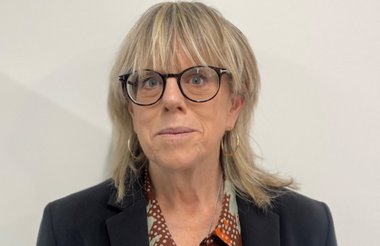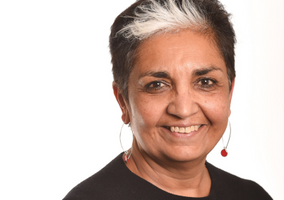Rise above the parapet? We’re already there. Charity CEOs are working and leading in a glass house these days and the proverbial stones are thrown from both inside and out. Our words matter for our organisations, our colleagues, our multiple stakeholders with their varied and even conflicting needs and demands. Are we seriously saying we need to make it more personal, speak out more, step outside the glass house, beyond the relative safety of our organisational silos? Yes, that’s exactly what we’re saying.
During the conversations my colleagues and I in the Charity Reform Group held during 2022 with a variety of influencers from business, public sector and the media (report can be found here), we heard that despite our campaigning, our efforts on social media, our expertise, there’s a gap in the public discourse where our voices should be. As individuals, charity leaders are not crossing the boundaries of our causes, to speak for social justice more widely, to bring the unique perspective of civil society to debates in which voices from business, government, journalism, the arts are regularly heard.
I used to be a journalist, admiring iconic charity leaders from afar, seeing them on Question Time and other studio debates, and was really excited if I got to meet them. People like Jonathan Porritt, Sheila McKechnie, Judi Clements. If you were interested in social justice, these were people you couldn’t avoid. People that inspired me to strive for change. People that made me realise you could use communication skills and talent to strive and fight for social justice, not just report on the struggle.
It’s no paradox that now, when charity leaders are more under fire than they were then, we are nevertheless in important ways more silenced and less visible. The risks of social media are scaring us away from platforms where we can make a real difference. And the disrespect too often shown by government has a well-publicised chilling effect on the sector’s appetite for venturing out of those glass houses.
Becoming more visible
Many charity CEOs feel so visible it takes huge resilience not to run and hide. And yet we are not visible enough, despite the constant noise that surrounds us.
So, if we’re going to change this, if we’re going to be heard above the din of nonsense, how do we prepare ourselves?
The first step is to realise that speaking up more won’t make anything worse. That may be because things are bad enough already. But it’s still true.
Second, we need to support our boards to understand what we experience, keep negative nonsense in proportion, and most of all to back our collective struggle to shift the national discourse.
Third, we need practice. I mean practice at stepping outside our individual missions when needed, practice at thinking on our feet, practice at knowing when to speak up and when not to (yes, even I accept there are times not to). The Charity Reform Group is working on ways to bring individuals in the sector together to do just that – to explore our collective and individual passion for a better world. This is emphatically not an effort to seek full agreement or shared positions because this is not about organisational partnerships, important though those are. This is an effort to explore and showcase the exciting variety of ideas, ambitions and innovations that emerge from our shared values, and that need to be heard in the search for a new discourse that is less exclusive, toxic and aggressive than the one that right now blocks the search for justice.
Fourth, we as civil society leaders need to be confident that we understand the legal restrictions we must adhere to. Only then will we be free to do what we can. A good example is the reticence some charities feel about promoting voter registration for some of the disenfranchised people we support and represent, as we approach the general election period. Supporting people to participate in our democracy is not political. It’s perfectly legal. But if charities are afraid to do this, as just one example, how else are we censoring ourselves unnecessarily?
And fifth, this must be a conscious choice that individual leaders make, advised by trusted colleagues and critically by our peers. Many of us are already used to public criticism. I’m sure I speak for many others when I say that I’m always ready to advise and share what I’ve learned from more than a decade of not being everyone’s cup of tea, to put it mildly. The right safeguards need to be in place, and those will vary from person to person, but there are some essentials. The most important is not to take risks with our own wellbeing and ability to continue to withstand the demands of our roles. There are techniques that we can share. And we can just offer each other support and make this a shared effort.
The call from the Charity Reform Group is to do something different; something we’re not used to doing. This is not campaigning, it’s not lobbying, it’s not being a spokesperson. This is joining a conversation that is happening all around us, without us. This is about starting something when we don’t know where it will lead, because the alternative is even more scary: an increasingly untrustworthy and toxic public discourse where the values we stand for and the hard lessons we and those we represent have learned continue to go unheard.
Related articles











